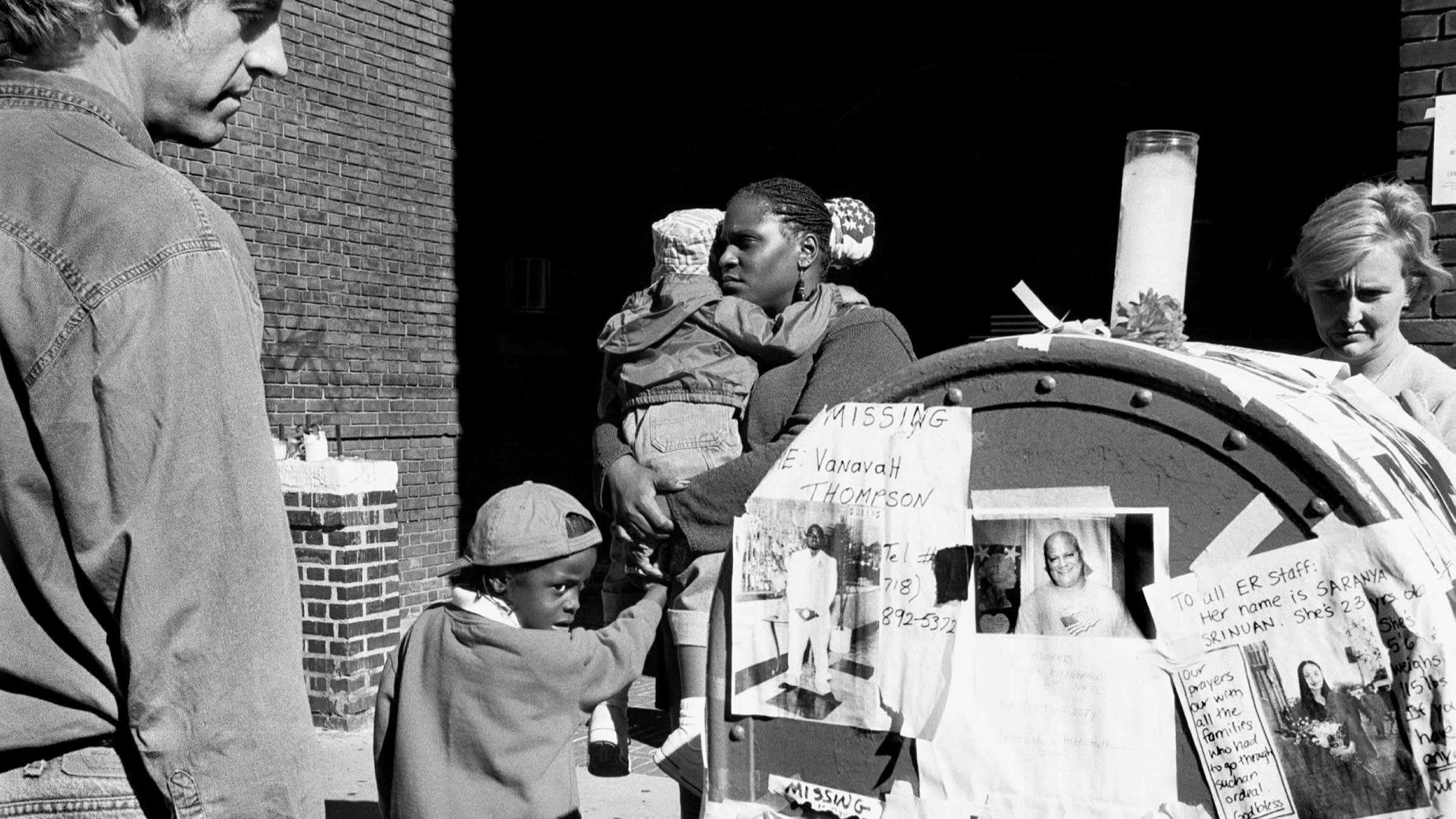Podcast uses surprising angles to look at the aftermath of 9/11

Arts updates
Sign up to myFT Daily Digest to be the first to know about Arts news.
The day after the terrorist attacks on the US in 2001, satirical media outlet The Onion was faced with a problem. That year the writing team had moved from Wisconsin to Manhattan. On September 10, they sent their first New York issue to press, after which they celebrated with a glitzy launch party. Waking up to tragedy the next day, it was clear that their jolly, gag-filled newspaper was no longer appropriate, so the issue was pulled. On returning to work a week later, they wondered: is it still OK to be funny?
It’s one of the themes explored in 9/12, a podcast launching this week looking at the aftermath of the terrorist attacks. Along with the fate of satire, the series looks at the “missing” posters that began to wallpaper the city, the film that sparked a wave of 9/11 conspiracy theories, and a CIA wheeze in which Hollywood screenwriters were summoned to Washington and asked to forecast potential terrorist plots.
The host and brains behind the series is Dan Taberski, one of America’s most prolific and inventive podcasters — responsible for Missing Richard Simmons, Surviving Y2K and The Line. 9/12 is much in the vein of his previous projects, approaching a familiar topic from a surprising and often edgy angle. It would be easy to be cowed by the subject of 9/11 and go for a solemnly historical approach, but this isn’t Taberski’s way. Here, his arch style endures, though it is leavened by philosophical moments that reveal poignant truths about how culture, politics and society were changed.
And so the creators of The Onion describe how they decided to tackle the terrorist attacks head-on with jokes about the national mood (sample headline: “Hugging Up 76,000 Percent”) and the political fallout (“US Vows To Defeat Whoever We’re At War With”). “We were trying to give people something that affirm[ed] our shared experience,” says one of the writers. In the same episode, Taberski summons the ghost of comedian George Carlin and his skit, recorded in front of a live audience on September 10 2001, about his love of fatal disasters entitled “I Kinda Like It When a Lotta People Die”. It makes for itchy listening, but the comic’s daughter Kelly Carlin unpicks it beautifully. “The pure chaos of it, that’s what he was talking about,” she says. “What chaos does is remind us of our true position — the hubris of human ego thinking we are above it all.”
New pod Long Shadow takes a more traditional approach to 9/11 as it examines what the journalist and host Garrett Graff calls “the most important story of the modern age” and tackles enduring questions, among them: why weren’t more people rescued from the towers? What was the target of United Airlines Flight 93? Was there really a fifth plane? The series is rigorous, authoritative and an electrifying listen.
*** This article has been archived for your research. The original version from Financial Times can be found here ***


